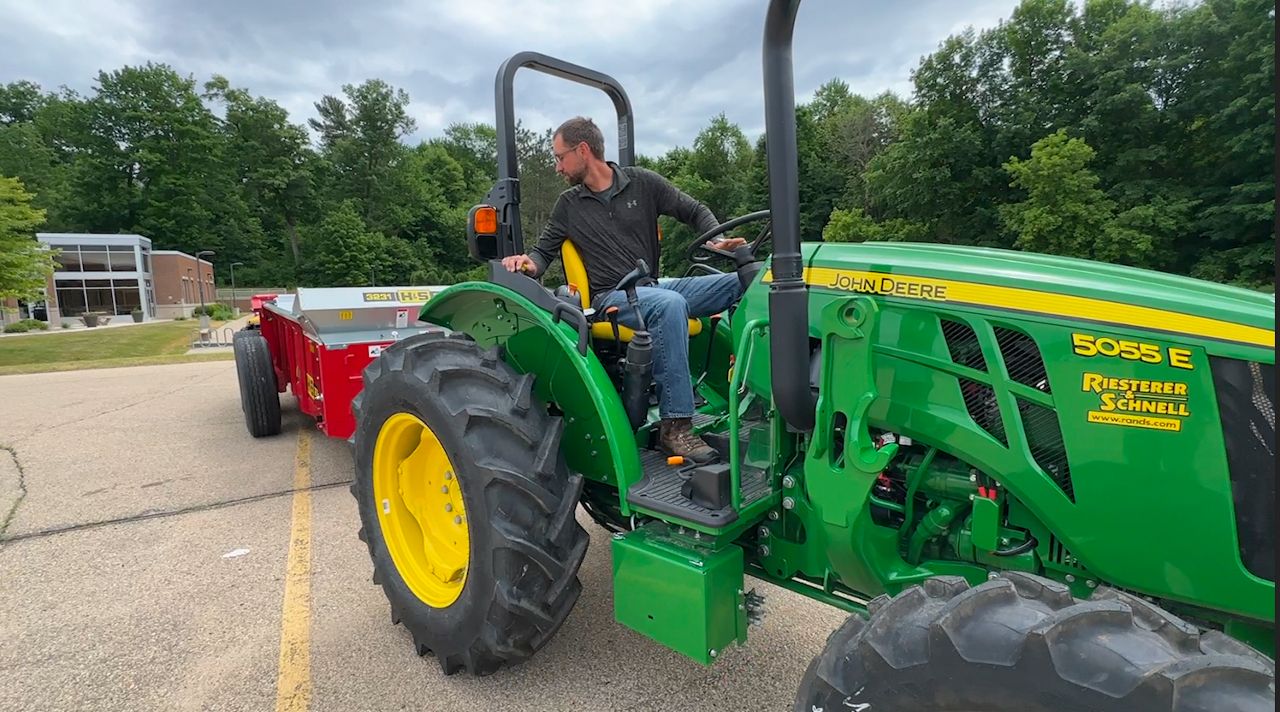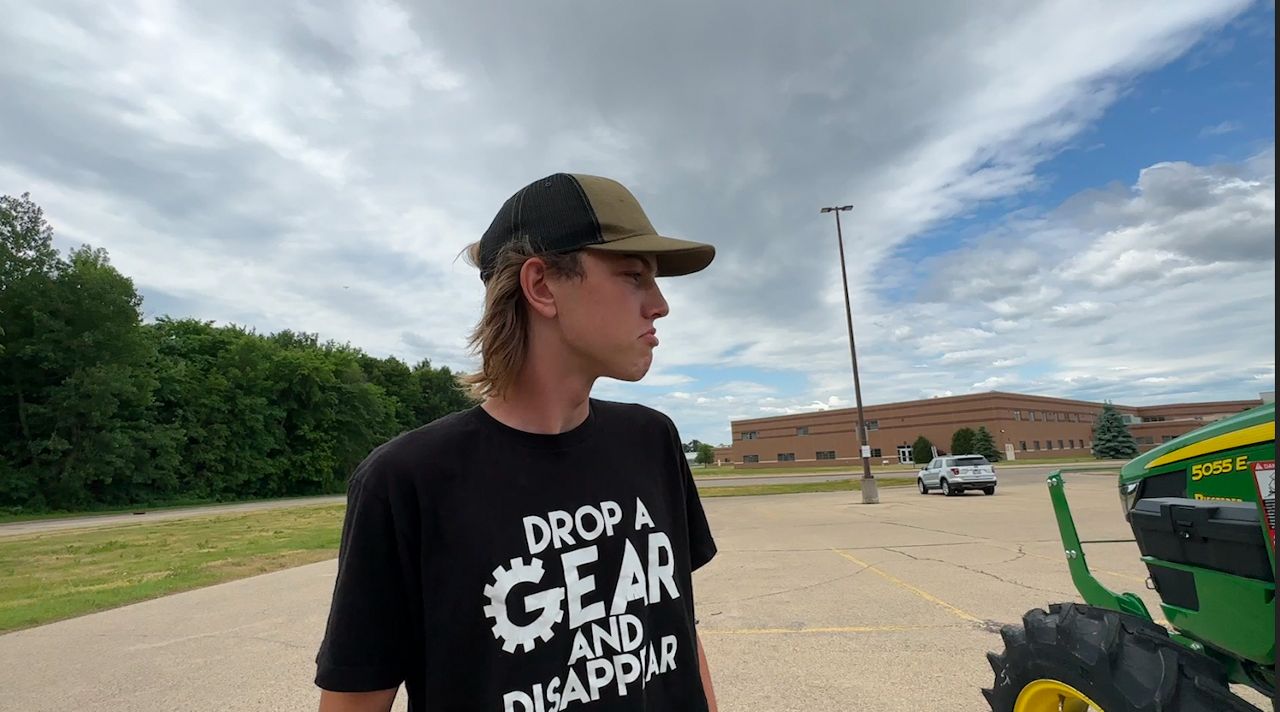SHAWANO, Wis. — Over the course of several days, Aaron Pape taught a group of young people about the hazards of working on a farm.
The class covered things ranging from silo gases to safe operation of tractors and machinery on public roadways.
Pape is a farm business instructor with Northeast Wisconsin Technical College.
“These kids come from a variety of backgrounds. Some of them come from farm families and some of them don’t,” he said. “We’re trying to set the basics of really two things. One is how to safely operate this vehicle. It’s a big, powerful machine. They’re going to encounter much larger pieces of equipment once they’re back on the farms. Then how to be safe, responsible people on the roadways.”
Pape runs a farm in Peshtigo with his wife.
“It can be kind of dangerous sometimes and a little bit scary, particularly if you’re going onto a county or state highway,” he said about using a tractor on public roads. “You have other motorists who are trying to get to places at 60 mph, or maybe faster, and you can only go 20 or 25 mph with a big piece of equipment that doesn’t stop quickly. Often times, you’re hauling an implement that’s wide and ungainly. We’re kind of at a disadvantage in that we have to go straight and slow.”

According to its latest numbers released in December, the National Farm Medicine Center in Marshfield said nearly 20% of all Wisconsin farm deaths happen on public roads. It cites under-marked or unlit equipment as one of the most notable concerns.
Cashten Davis of Krakow is one of the students that attended the safety class at NWTC’s Shawano campus.
“From when I was a little kid, I was always very interested by anything mechanical, mostly tractors,” he said. “It’s a job I’ve always wanted to experience at least once, just for a while, even.”
He’s aware of the need for this kind of education.
“Pay attention to your surroundings. Be well aware of and be listening,” Davis said. “You’ve got the radio in the tractor. You don’t want that to be just blaring, you want to be listening. You know your equipment and you want to make sure it’s running properly, but also paying attention to your driving on the road.”

In the class, Pape drives home the finer points of safety to the students.
But he’s also asking for the help of motorists.
“If I could just have one plea to motorists is to be patient, slow down and really watch that tractor operator in the cab and what he’s trying to do,” Pape said. “He might be making a hand signal, he might be looking and motioning. Don’t be in such a hurry to pass a tractor. It might not be a safe scenario to do so.”
To get more reflective slow-moving vehicle markings to farmers, a partnership of several organizations will be offering a limited supply of free signs at Wisconsin Farm Technology Days in Baraboo July 18-20.



